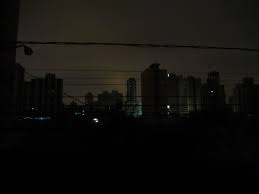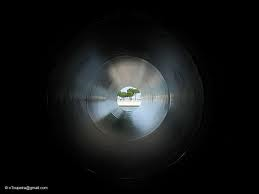
I am a fan of the hit AMC show “The Walking Dead”. For those of you who might not be familiar with the show, the dead have risen into zombies. Much of the population has been decimated, and those who survive are faced with one of the worst, albeit fake, TEOTWAWKI scenarios possible.
As I mentioned, I know the situation is fake but if you take out the zombies and replace them with a severe pandemic, life could be very similar. I think there are some great lessons to be learned, from the creative and somewhat dark minds that have created the original graphic novel and now the hit show. Below are ten of the lessons I have learned. Many of these examples are not new lessons for me but they are still items I gleaned from the show. If you have not watched the show but are considering it, be forewarned; there will be some spoilers here.
In a Worst Case Scenario, You Cannot Have Enough of Anything
None of the people in the show were preppers. They soon ran out of just about everything. They scavenged to get some needed items but never seem to have a surplus of anything. Ammo, in particular, was something they were constantly in short supply of, so much so that they used hand to hand, and a crossbow to dispatch the zombies.
You Cannot Count on the Government to Fix Things
I have read from multiple sources that during a large scale event, a minimum of 60% of first responders will not show up for work. In The Walking Dead, police and military forces are overrun in every city, save one group of National Guard that are killed by a group of bandits. In the first season, the goal for the main characters is to make it to the CDC, which they find overrun (for the first part).
While I think the government would fare better during a pandemic than government agencies did in The Walking Dead, they may not be capable of saving the day (duh). Since I am equating the rise of the dead from the show to a pandemic, I think the movie Contagion (which I reviewed here) showed a realistic response from government. They will do their best but we need to be our own first responders.
There is No Place Like Home…Sometimes
I am a firm believer that in the vast majority of scenarios, staying home and battening down is the safer choice. In two of the seasons they had a main “base”; a farm and a prison. They were overrun by zombies and forced to leave the safety of the farm. After wandering for months they find a prison and make it home. They are attacked by another group of humans and are faced with the choice of going back on the road, hoping they can find another sanctuary, or defending their new home.
Having a bug out plan and being able and ready to put it in place on a moment’s notice is a must. When they are chased from the farm, they have no time to get any supplies and are forced to leave with the clothes on their backs and a few vehicles. This is also a good reason to keep a car kit in each vehicle, that way you will always have a few supplies.
There is Safety in Numbers, IF You Can Trust Them
In this TEOTWAWKI event there are so many dangers and so much that needs to be done to ensure daily survival, that having a group of trustworthy, like-minded people is an absolute must! There is a caveat; there are people who, with the rule of law removed, will take anything by force. Through the three seasons, the group runs into two groups of such people and each time it escalates into violence.
That being said, there is just too much to be done for a lone person or a small group to accomplish, from gathering food and other supplies, cooking, gathering firewood, getting water, doing laundry, fortifying positions, standing watch and on and on.
Food Stores Eventually Run Out
As I mentioned above, none of the group were preppers. Even if they had been, they might have been overrun and forced to leave their preparations behind. They had water available in several locations, but were low on food several times, once having an owl and two cans of dog food as a potential meal.
Throughout the course of the show, they hunted, fished and scavenged for food. It was never enough to feed their entire group. Only when they were on the farm did they never want for food. When they found the prison, one of the first things mentioned was where they could grow food.
This show does a better job than any other TEOTWAWKI show, movie or book that comes to mind when it comes to the effort it takes to keep a group fed and I think they still fall short in the effort it takes. Like I mentioned, only at the farm did they not go hungry. Knowing how to grow food is a skill everyone should learn and practice.
Medical and First Aid Training is an Absolute Must
From memory, the group saw a gunshot wound, transfusions, crossbow wound, shock and depression, severe cuts, sprained ankle, impalement on a fence, several beatings, birth, amputation and I’m sure I’m missing some. While I understand the show is fiction and that some of these items were added for the sake of dramatic effect, in a severe wide scale event like this or any other, people will be doing things they didn’t do in their normal everyday lives.
The group is fortunate enough to find a veterinarian who can help with some of the more difficult procedures along the way. A good first aid class would give someone the information and skills needed to remedy several of things you may face. Books like “Where There Is No Doctor” would be a great item to have.
Be Ready to Defend Yourself at a Moment’s Notice
Early on, the group learned this lesson; they have to watch out for the “walkers” and other humans. Strangers are met and often introductions are made at the point of a gun. Many of you are familiar with the Cooper Color Code. In a TEOTWAWKI situation such as this show, anytime there are strangers present, one might be in condition orange or in condition black, just awaiting the next threat.
This is another reason that having a place to stay put is important. There, with others on watch, one can relax, even if only temporarily. Being at a heightened state of alert for an extended length of time can physically, emotionally and mentally take a toll on a person’s overall health.
Living in a Pressure Cooker
Living in close contact with people in a high stress environment can meld people together or drive them apart. The bonds that can be formed with people can be the strongest kind of bonds there are. The length of time you know a person means next to nothing. There are a few examples of brothers and people who grew up together fracturing, while others who’ve known each other for a short time withstand many tests.
Leadership
The person who takes a leadership role might have to make some very difficult decisions. Some in the group will respect the person and be glad they, themselves, didn’t have to make the decision. Others may fight every decision that is made, thinking they know better.
I think Rick, the leader of the group in the Walking Dead, is a good example of a leader. He listens to all sides and is not afraid of making the hard call. He shows compassion and mercy and is determined to protect those who’re under his care.
Some Come to Faith, Others Leave It
The show only lightly touches on faith but this is something else I have seen in real life. In dire times, people turn to God; some just to ask “why?” and others to find a savior. There are those who are believers and, for whatever reason, turn from God. In the show, the main character, Rick Grimes, who is an unbeliever, enters an empty church and prays. Hershel, a man of faith, is seen studying the Bible and quotes scripture now and then. After his farm is overrun, he seems to have lost his faith.
I think that as believers we need to have a ready answer to the questions of “how a loving God could allow this to happen.” We also need to be encouragers and be praying for those in our group, that God see’s us all through the event we’re currently in.
If you liked this article please think about sharing it on the social media listed below, thanks!










